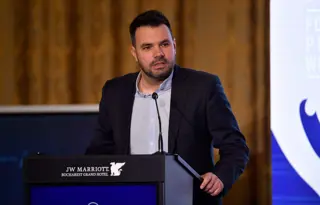News
Youth players in Romania no longer required to sign with team that trained them

- Romanian Football Federation (FRF) abolishes rule that requires minor players to sign with team that trained them
- The nation’s player union AFAN welcomes the "historic win"
- Minor players in Romania will finally enjoy freedom of movement and can negotiate fair contract, with rule coming into effect from 1 July 2024
Young players in Romania can now decide which club they will sign their first contract with, after player union AFAN convinced the Romanian Football Federation (FRF) to abolish a rule that 16- and 19-year-old players are required to sign a new contract with the club that trained them. The change will come into effect from 1 July 2024.
"This is a historic win," said AFAN President Emilian Hulubei. "This rule was in place when I was a youth player," the 45-year-old added.
The rule limited players’ freedom of movement and right to negotiate fair contract terms. Players also had to accept what the club offered them.
Sixteen-year-old players had to sign a three-year contract with a minimum salary of 800 lei (approximately USD 175) and if their club offered them a new contract before they turned 19, they had to accept it as long as the minimum salary was equal to a certain amount: USD 550 for first division players, USD 440 for second division players and USD 330 for third division players.
"When players refused to sign the contract, they risked a two-year suspension and a financial penalty," said Hulubei.
Because of this rule, clubs could retain youth players against their will and then try to release them against a transfer fee payment. "Clubs didn’t care about the players’ careers," Hulubei said. "Players at smaller clubs could not move to better teams because bigger clubs were not always willing to pay transfer fees. Unfortunately, too many players left football because of this."

The player union had been fighting this practice for years. "When I started working at AFAN in 2007, we were already trying to abolish this rule," said Hulubei. "We started many procedures against clubs. We even tried to have this practice banned by labour law, but five years on the law is still pending in parliament."
Starting last summer, the player union held various discussions with the football federation to change this regulation. In December both parties reached an agreement, which was accepted by the federation’s executive committee in late January.
"I think the FRF and the clubs understood that this rule was no longer sustainable when two 16-year-old players who had been suspended for two years after refusing to sign a contract with the club that trained them turned to CAS being supported by AFAN and FIFPRO," Hulubei said. "Even though the case is still pending, the FRF and the club already annulled the suspension. However, the players have suffered losses that need to be compensated which explains why AFAN and FIFPRO keep supporting them in their appeal."
Hulubei concluded: "The FRF and the clubs must have realised that we can be successful at CAS, which will have financial consequences for them as they risk having to pay compensation and the costs for the procedure. If we win, we could bring many more cases to CAS, which could prove very costly for the clubs. I think this helped them realise that they should better abolish this rule. Now, young players finally have the freedom to find the best opportunity for their career."
